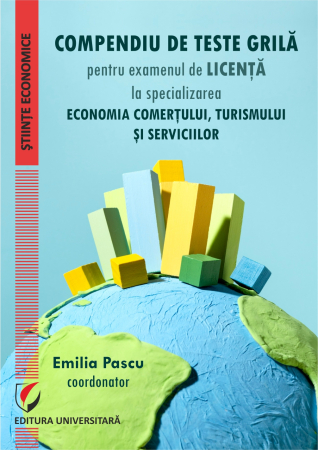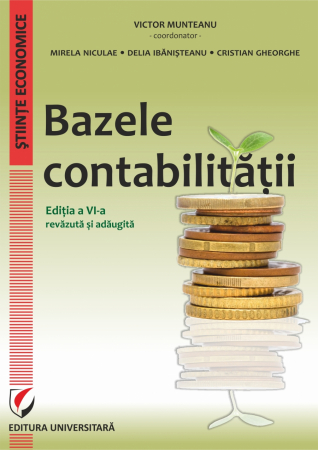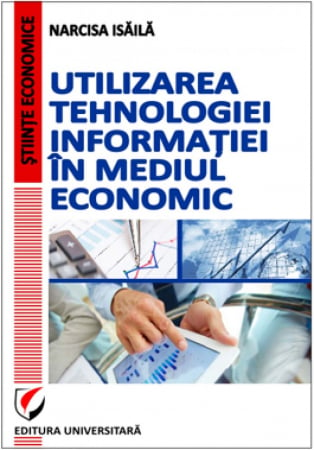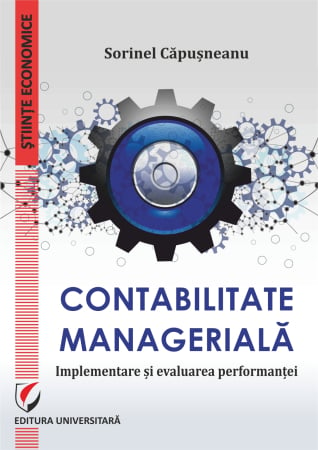Manuscript proposals: [email protected] / 0745 204 115 //// Tracking orders Individuals / Sales: 0745 200 357 / Orders Legal entities: 0721 722 783
Publisher: Editura Universitară
Author: Mihai Cristian Apostolache, Mihaela Adina Apostolache
ISBN: 978-606-591-950-1
DOI: 10.5682/9786065919501
Publisher year: 2014
Edition: I
Pages: 215
Product Code:
9786065919501
Do you need help?
0745 200 357
- Description
- Download (1)
- Authors
- Content
- More details
- Reviews (0)
The deontology of the civil servant represents the totality of the norms that govern the professional and private behavior of the civil servant, by virtue of his status or holder of the public authority, these norms being structured according to the relations inside or outside the public service.
-
Deontologia functionarului public
Download
MIHAI CRISTIAN APOSTOLACHE
MIHAELA ADINA APOSTOLACHE
MIHAELA ADINA APOSTOLACHE
Theme I. Terminological specifications / 11
1.1. Deontology / 11
1.2. The civil service and the civil servant / 14
1.3. European civil servant / 22
Theme II. General considerations regarding the deontology of the civil servant / 25
2.1. General aspects / 25
2.2. Sources of civil servant deontology / 29
Theme III. Civil servant status / 32
3.1. General aspects / 32
3.2. Principles of exercising public office / 32
3.3. Classification of public positions. Categories of civil servants / 34
Theme IV. Occupation of public positions. Conditions / 40
4.1. Occupation of public positions. Modalities / 41
4.2. Internship period / 42
4.3. Appointment of civil servants / 44
4.4. Oath of Faith / 45
4.5. Modification of the service relations of the civil servants / 46
4.6. Suspension of service relations / 46
4.7. termination of employment / 49
Theme V. The rights and duties of civil servants / 55
5.1. The rights of civil servants / 55
5.2. Duties of civil servants / 61
5.3. Joint Committees / 66
5.4. Evaluation of civil servants / 68
5.4.1. Evaluation of new civil servants / 68
5.4.2. Evaluation of permanent civil servants / 69
Topic VI. Incompatibilities and conflicts of interest in the exercise of public functions / 72
6.1. Incompatibilities / 72
6.2. Conflict of interest / 78
Theme VII. Liability of civil servants / 81
7.1. Disciplinary liability of the civil servant / 83
7.1.1. Administrative misconduct / 84
7.1.2. The term of application of the disciplinary sanctions / 85
7.1.3. The body that applies the disciplinary sanctions / 86
7.1.4. Discipline Commission / 87
7.1.5. Constitutive elements of the administrative sanctioning act / 88
7.1.6. Criminal record / 89
7.1.7. Deletion of disciplinary sanctions / 89
7.2. Contraventional liability of the civil servant / 90
7.3. Civil liability of the civil servant / 90
7.4. Criminal liability of the civil servant / 91
Theme VIII. Management of civil servants and civil servants / 93
Theme IX. Scope and basic principles in the deontology of the civil servant / 100
9.1. Scope of application / 100
9.2. Principles of deontological nature of the professional conduct of civil servants / 103
9.2.1. Constitutional principles / 103
9.2.2. Legal principles of the professional conduct of civil servants / 108
Theme X. General norms of professional conduct of civil servants / 112
Theme XI. Coordination, monitoring and control of the application of the norms of professional conduct of civil servants / 123
11.1. Coordination, monitoring and control of the application of the norms of professional conduct of civil servants performed by ANFP / 123
11.2. Coordination, monitoring and control of the application of the norms of professional conduct of civil servants performed by the heads of public authorities and institutions / 124
11.3. ANFP annual report on the management of the civil service and civil servants / 125
Theme XII. Elements of deontology specific to civil servants with special status / 132
12.1. Parliamentary civil servants / 133
12.2. Public managers / 137
12.3. Code of conduct for civil servants and Code of conduct for contract staff / l38
Theme XIII. Deontology of European officials / 146
13.1. General aspects regarding the institutions of the European Union / 146
13.2. Law and morality in the activity of European civil servants / 147
13.3. European regulations on the conduct of civil servants and other subjects of public law / 148
13.3.1. The right to good administration / 150
13.3.2. Right to refer the matter to the European Ombudsman / 150
13.3.3. Referral procedure and status of the Ombudsman / 151
Theme XIV. European principles and rules of conduct / 157
14.1. Principles and rules of conduct contained in the European Code of Good Administrative Behavior / 157
14.2. European principles of the public service / 166
Annexes / 169
Annex 1/170
Annex 2/184
Annex 3/187
Annex 4/205
Annex 5/213
1.1. Deontology / 11
1.2. The civil service and the civil servant / 14
1.3. European civil servant / 22
Theme II. General considerations regarding the deontology of the civil servant / 25
2.1. General aspects / 25
2.2. Sources of civil servant deontology / 29
Theme III. Civil servant status / 32
3.1. General aspects / 32
3.2. Principles of exercising public office / 32
3.3. Classification of public positions. Categories of civil servants / 34
Theme IV. Occupation of public positions. Conditions / 40
4.1. Occupation of public positions. Modalities / 41
4.2. Internship period / 42
4.3. Appointment of civil servants / 44
4.4. Oath of Faith / 45
4.5. Modification of the service relations of the civil servants / 46
4.6. Suspension of service relations / 46
4.7. termination of employment / 49
Theme V. The rights and duties of civil servants / 55
5.1. The rights of civil servants / 55
5.2. Duties of civil servants / 61
5.3. Joint Committees / 66
5.4. Evaluation of civil servants / 68
5.4.1. Evaluation of new civil servants / 68
5.4.2. Evaluation of permanent civil servants / 69
Topic VI. Incompatibilities and conflicts of interest in the exercise of public functions / 72
6.1. Incompatibilities / 72
6.2. Conflict of interest / 78
Theme VII. Liability of civil servants / 81
7.1. Disciplinary liability of the civil servant / 83
7.1.1. Administrative misconduct / 84
7.1.2. The term of application of the disciplinary sanctions / 85
7.1.3. The body that applies the disciplinary sanctions / 86
7.1.4. Discipline Commission / 87
7.1.5. Constitutive elements of the administrative sanctioning act / 88
7.1.6. Criminal record / 89
7.1.7. Deletion of disciplinary sanctions / 89
7.2. Contraventional liability of the civil servant / 90
7.3. Civil liability of the civil servant / 90
7.4. Criminal liability of the civil servant / 91
Theme VIII. Management of civil servants and civil servants / 93
Theme IX. Scope and basic principles in the deontology of the civil servant / 100
9.1. Scope of application / 100
9.2. Principles of deontological nature of the professional conduct of civil servants / 103
9.2.1. Constitutional principles / 103
9.2.2. Legal principles of the professional conduct of civil servants / 108
Theme X. General norms of professional conduct of civil servants / 112
Theme XI. Coordination, monitoring and control of the application of the norms of professional conduct of civil servants / 123
11.1. Coordination, monitoring and control of the application of the norms of professional conduct of civil servants performed by ANFP / 123
11.2. Coordination, monitoring and control of the application of the norms of professional conduct of civil servants performed by the heads of public authorities and institutions / 124
11.3. ANFP annual report on the management of the civil service and civil servants / 125
Theme XII. Elements of deontology specific to civil servants with special status / 132
12.1. Parliamentary civil servants / 133
12.2. Public managers / 137
12.3. Code of conduct for civil servants and Code of conduct for contract staff / l38
Theme XIII. Deontology of European officials / 146
13.1. General aspects regarding the institutions of the European Union / 146
13.2. Law and morality in the activity of European civil servants / 147
13.3. European regulations on the conduct of civil servants and other subjects of public law / 148
13.3.1. The right to good administration / 150
13.3.2. Right to refer the matter to the European Ombudsman / 150
13.3.3. Referral procedure and status of the Ombudsman / 151
Theme XIV. European principles and rules of conduct / 157
14.1. Principles and rules of conduct contained in the European Code of Good Administrative Behavior / 157
14.2. European principles of the public service / 166
Annexes / 169
Annex 1/170
Annex 2/184
Annex 3/187
Annex 4/205
Annex 5/213
Any organizational structure, be it public or private, large, medium or small, includes a staff whose mission is to achieve the objectives of the organization. The performance of the organization and the image it creates among the public opinion depends on the quality of the staff. When we talk about the quality of the staff, we think, of course, of both the professional quality and the moral quality. Moreover, ethical and moral values are part, along with other values, of the culture of institutions, authorities, services and are tools based on which behaviors are evaluated.
The public administration, as a social subsystem, is in turn made up of people, whose role is to organize the execution and to concretely execute the laws and other normative acts, to adopt or issue administrative acts, to provides public services and perform a multitude of administrative and technical-material operations. Whether we are talking about public officials, civil servants or contract staff, all these categories of staff must have solid professional knowledge, but also to share a set of moral values in accordance with the values of the organization or institution. The public administration must be viewed from the point of view of legal norms and rules, but also according to moral criteria.
A well-known author rightly argued that “ignoring the development on ethical coordinates of the administration, under the pretext that law enforcement is enough, is also one of ignoring the fact that civil servants are people, not mere executors, that they have their own values. , come from different backgrounds, and their desire to assert themselves as professionals of the administration is not reduced to conformity, debt on task, salary, sanction, reward, but that professional identity becomes a component of personal identity ”. The ethical area of administration, says the same author, is all the more sensitive as the aim is to maintain public confidence in the functioning of institutions.
The importance of the interpenetration of the legal dimension with the deontological one in the case of the civil servant was also emphasized by prof. Univ. Verginia Vedinas. The mentioned author appreciates that “the civil servant, with general or special status, from the structures of the legislative power or of the executive power, must represent a symbiosis as close as possible to perfection, between the legal and the deontological dimension. In vain is a good professional, if in terms of professional and civic conduct is an absolute fiasco. The two components of its statute cannot be broken from each other. " Obeying the law is not the same as behaving ethically, because the law can deviate from what is ethical.
Of all the resources available to the administration (material, financial, human resources), human resources are the most important. Officials are the mirror of the administration, being a tool through which it works. The category of civil servants highlights the civil servant considered one of the most important institutions of public law and a fundamental element of the rule of law. The very activity of the civil servant depends on the activity of the institution of which he is part and implicitly the satisfaction or dissatisfaction of a public interest, because a public institution, an authority or a public service have the mission to serve the general public interest. Raising a social need to the rank of public interest also presupposes a legislative consecration that specifies, on the one hand, the social need, and on the other hand, the limits of action to satisfy this need.
Moral values are enshrined in written or unwritten norms and together with legal values must guide the entire conduct of the civil servant. Moral norms, like legal ones, are also produced by habit or intention. The tendency in the matter of legislating these values is that the norms that enshrine them are included in a complex regulation in the form of a code or statute. At European level it is found that different professions have regulated the activity based on statutes and codes. Thus, there is a deontological code of doctors, teachers, notaries or a statute of local elected officials, a statute and a code of civil servants, a deontological code of simple employees. In fact, the rules of deontological nature configure the identity of a profession in relation to others in terms of the conduct of those who practice it.
If citizens no longer trust the administration, the civil servants, they will no longer turn to the administration to solve their problems, but will use other methods that may be illegal or immoral. But the civil servant is also a citizen, but not any citizen. He is a citizen legally invested to exercise the prerogatives of public power. That is why the doctrine and jurisprudence have appreciated that the civil servant must be specific two categories of obligations:
- obligations related to the exercise of the public function, also called professional obligations, which concern the fulfillment, in accordance with the law, of the service attributions and which have a predominantly legal dimension;
- obligations that exceed the function it fulfills, which concern the private life of civil servants and which have a predominantly ethical and legal dimension.
These obligations are complemented by those that the civil servant has as a simple citizen.
At the basis of the functioning of organizations, institutions, public services is the principle of legality. The civil servant has the obligation to observe and apply exactly the law. The supremacy of the law, equality in the content of the law and before the law are principles on the basis of which the mission of the administration must be realized as an activity of law enforcement and provision of public services. The civil servant must be convinced of the importance and legal force of the law not because he would otherwise be sanctioned, but because, within himself, he is aware that he is a servant of the public interest and of the rule of law. In other words, if the objective side of the civil servant's deontology does not combine with its subjective side, deontology becomes a form without content. It turns out that, only if both sides of deontology are met, we are in the presence of a profession that has a real deontology.
The deontology of the civil servant can be defined as representing the totality of the norms that govern the professional and private behavior of the civil servant, by virtue of the status or holder of the public authority, these norms being structured according to the relations inside or outside the public service.
The public administration, as a social subsystem, is in turn made up of people, whose role is to organize the execution and to concretely execute the laws and other normative acts, to adopt or issue administrative acts, to provides public services and perform a multitude of administrative and technical-material operations. Whether we are talking about public officials, civil servants or contract staff, all these categories of staff must have solid professional knowledge, but also to share a set of moral values in accordance with the values of the organization or institution. The public administration must be viewed from the point of view of legal norms and rules, but also according to moral criteria.
A well-known author rightly argued that “ignoring the development on ethical coordinates of the administration, under the pretext that law enforcement is enough, is also one of ignoring the fact that civil servants are people, not mere executors, that they have their own values. , come from different backgrounds, and their desire to assert themselves as professionals of the administration is not reduced to conformity, debt on task, salary, sanction, reward, but that professional identity becomes a component of personal identity ”. The ethical area of administration, says the same author, is all the more sensitive as the aim is to maintain public confidence in the functioning of institutions.
The importance of the interpenetration of the legal dimension with the deontological one in the case of the civil servant was also emphasized by prof. Univ. Verginia Vedinas. The mentioned author appreciates that “the civil servant, with general or special status, from the structures of the legislative power or of the executive power, must represent a symbiosis as close as possible to perfection, between the legal and the deontological dimension. In vain is a good professional, if in terms of professional and civic conduct is an absolute fiasco. The two components of its statute cannot be broken from each other. " Obeying the law is not the same as behaving ethically, because the law can deviate from what is ethical.
Of all the resources available to the administration (material, financial, human resources), human resources are the most important. Officials are the mirror of the administration, being a tool through which it works. The category of civil servants highlights the civil servant considered one of the most important institutions of public law and a fundamental element of the rule of law. The very activity of the civil servant depends on the activity of the institution of which he is part and implicitly the satisfaction or dissatisfaction of a public interest, because a public institution, an authority or a public service have the mission to serve the general public interest. Raising a social need to the rank of public interest also presupposes a legislative consecration that specifies, on the one hand, the social need, and on the other hand, the limits of action to satisfy this need.
Moral values are enshrined in written or unwritten norms and together with legal values must guide the entire conduct of the civil servant. Moral norms, like legal ones, are also produced by habit or intention. The tendency in the matter of legislating these values is that the norms that enshrine them are included in a complex regulation in the form of a code or statute. At European level it is found that different professions have regulated the activity based on statutes and codes. Thus, there is a deontological code of doctors, teachers, notaries or a statute of local elected officials, a statute and a code of civil servants, a deontological code of simple employees. In fact, the rules of deontological nature configure the identity of a profession in relation to others in terms of the conduct of those who practice it.
If citizens no longer trust the administration, the civil servants, they will no longer turn to the administration to solve their problems, but will use other methods that may be illegal or immoral. But the civil servant is also a citizen, but not any citizen. He is a citizen legally invested to exercise the prerogatives of public power. That is why the doctrine and jurisprudence have appreciated that the civil servant must be specific two categories of obligations:
- obligations related to the exercise of the public function, also called professional obligations, which concern the fulfillment, in accordance with the law, of the service attributions and which have a predominantly legal dimension;
- obligations that exceed the function it fulfills, which concern the private life of civil servants and which have a predominantly ethical and legal dimension.
These obligations are complemented by those that the civil servant has as a simple citizen.
At the basis of the functioning of organizations, institutions, public services is the principle of legality. The civil servant has the obligation to observe and apply exactly the law. The supremacy of the law, equality in the content of the law and before the law are principles on the basis of which the mission of the administration must be realized as an activity of law enforcement and provision of public services. The civil servant must be convinced of the importance and legal force of the law not because he would otherwise be sanctioned, but because, within himself, he is aware that he is a servant of the public interest and of the rule of law. In other words, if the objective side of the civil servant's deontology does not combine with its subjective side, deontology becomes a form without content. It turns out that, only if both sides of deontology are met, we are in the presence of a profession that has a real deontology.
The deontology of the civil servant can be defined as representing the totality of the norms that govern the professional and private behavior of the civil servant, by virtue of the status or holder of the public authority, these norms being structured according to the relations inside or outside the public service.
If you want to express your opinion about this product you can add a review.
write a review

6359.png)
![Deontology of the civil servant [1] Deontology of the civil servant [1]](https://gomagcdn.ro/domains/editurauniversitara.ro/files/product/large/deontologia-functionarului-public-1033-745355.jpg)














